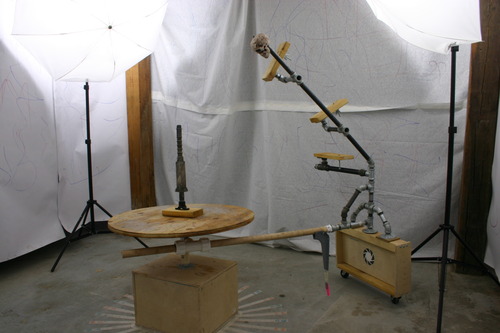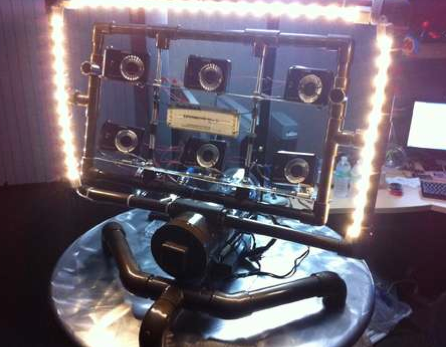
Here’s a camera rig that makes it a snap to produce photorealistic 3D models of an object. It was put together rather inexpensively by an indie game company called Skull Theatre. They published a couple of posts which show off how the rig was built and how it’s used to capture the models.
They’re using 123D, a software suite which is quite popular for digitizing items. The rig has a center table where an object is placed, and a movable jig which holds three different cameras (or one camera for three rotations). You can see the masking tape on the floor which marks the location for each shot. These positions are mapped out in the software so that it has an easy time putting them all together. The shaft which connects the jig to the base is adjustable to accommodate large or small items.
One thing that we found interesting is the team’s technique for dealing with reflections. They use a matte spray to make those surfaces less reflective. This helps 123D do its job but also allows them to map reflective surface more accurately using the game engine.













